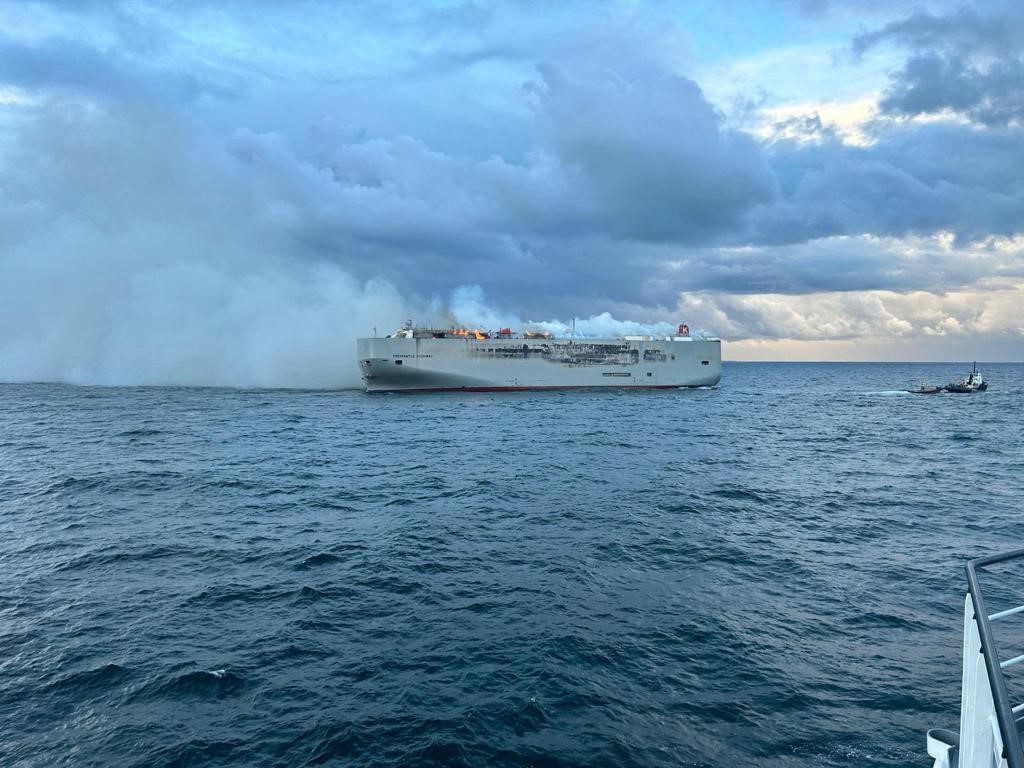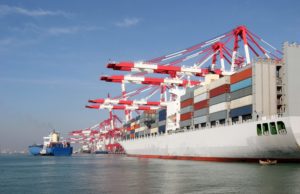Annual shipping losses have declined last year but recent incidents in the wake of the conflict in Gaza have demonstrated the increasing vulnerability of global shipping to proxy wars and disputes, with more than 100 ships targeted in the Red Sea alone by Houthi militants in response to the conflict, according to insurance company Allianz Commercial.
Last year 26 total losses of vessels over 100 gross tonnage were reported globally compared with 41 a year earlier down by more than a third, as revealed in Allianz’s Safety and Shipping Review 2024.
Thirty years ago, the global shipping fleet lost around 200 large vessels a year. This total fell to a record low of 26 in 2023, a decline of more than one third year-on-year and by 70% over the past decade.
However, the fact that shipping is increasingly subject to growing volatility and uncertainties from war and geopolitical events, the consequences of climate change, as well as ongoing risks resulting from the trend for larger vessels means the sector will have its work cut out to maintain this status quo in future.
The re-emergence of Somali pirates, following their first successful hijacking since 2017, is an additional cause for concern.
Captain Rahul Khanna, global head of marine risk consulting, Allianz Commercial, said: “Conflicts such as in Gaza and Ukraine are reshaping global shipping, impacting crew and vessel safety, supply chains and infrastructure, and even the environment.
“Piracy is on the rise, with a worrying re-emergence off the Horn of Africa. The ongoing disruption caused by drought in the Panama Canal shows how the changing climate is affecting shipping, all at a time when it is having to undertake its most significant challenge, decarbonization.”
The report also highlights that the South China, Indochina, Indonesia and the Philippines maritime region is the global loss hotspot, both over the past year and decade (184). It accounted for almost a third of vessels lost last year (8). The East Mediterranean and Black Sea ranks second (6) with activity up year-on-year. Cargo ships accounted for over 60% of vessels lost globally in 2023. Foundered (sunk) was the main cause of all total losses, accounting for 50%. Extreme weather was reported as being a factor in at least 8 vessel losses around the world in 2023, with the final total likely higher.
The number of shipping incidents reported globally declined slightly last year (2,951 compared to 3,036), with the British Isles seeing the highest number (695). Fires onboard vessels also declined.
However, there have still been 55 total losses in the past five years, and over 200 fire incidents reported during 2023 alone (205) – the second highest total for a decade after 2022.
Fires remain a key safety issue on larger vessels given the potential threat to life, scale of the damage, and the fact associated costs can be severe, a factor contributing to the long-term increase in the cost of large marine insurance claims.
Allianz’s report notes that rerouting brings risks and environmental challenges. Attacks against shipping in Middle East waters have also severely impacted Suez Canal transits – down by more than 40% at the beginning of 2024 – and trade. This amounts to a double strike on shipping, causing yet more issues for global supply chains after the ongoing disruption caused by drought in the Panama Canal.
Rerouting also impacts the risk landscape and the environment. Storms and rough seas can be more challenging for smaller vessels used to sailing coastal waters, while infrastructure to support an incident involving the largest vessels, such as a suitable port of refuge or a sophisticated salvage operation may not be available.
The report also notes that in the three years since Russia invaded Ukraine the gradual tightening of international sanctions on Russian oil and gas exports has contributed to the growth of a sizeable ‘shadow fleet’ of tankers, somewhere between 600 to 1,400 vessels.
The shipping industry is also facing ‘green shipping challenges’ as the industry will need to develop infrastructure to support vessels using alternative fuels, such as bunkering and maintenance, while at the same time phasing out fossil fuels.
There are also potential safety issues with terminal operators and vessels’ crew handling alternative fuels that can be toxic or highly explosive.
Justus Heinrich, global product leader, marine hull, Allianz Commercial, noted: “Increasing shipyard capacity will also be key as the demand for green ships accelerates. Such capacity is currently constrained with long waiting times and high building prices. Over 3,500 ships must be built or refitted annually until 2050, yet the number of shipyards more than halved between 2007 and 2022.
“Capacity constraints on shipyards could have a knock-on effect for repairs and maintenance, with damaged vessels or those with machinery issues potentially facing long delays.”
Machinery damage or failure is the most frequent cause of shipping incidents, accounting for over half of these globally in 2023 (1,587).



